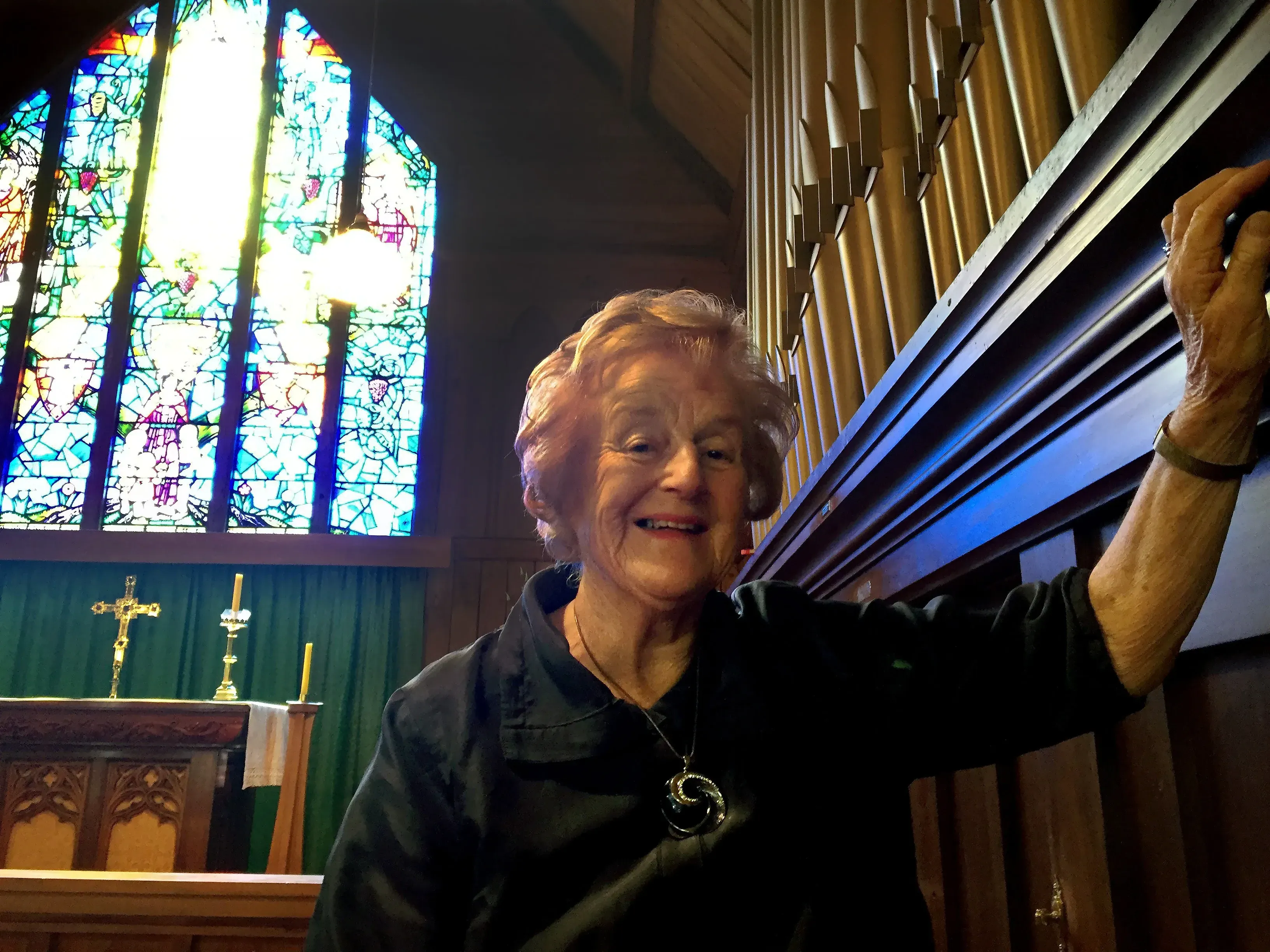Helen Collier: Reflections on a performance career spanning 60 years.
Written by

“My whole aim in life was to be a pianist,” says concert pianist Helen Collier. She began learning at age four and, now 87, has been playing ever since. “I just loved the music and love the whole process of interpreting the music. I still do.”
Coming from a very musical family, Helen’s journey into a performance music career was encouraged and well supported. After completing her LRSM here in New Zealand, she studied at the Conservatorium of Music in Sydney for three years, and then for a further three years at the Vienna Conservatorium of Music.
“Vienna was the best time of my life, I was working with the very best teachers and hearing the very best musicians. Music is their lifeblood there, even the average man on the street is likely to be whistling an aria from Don Giovanni.”
Helen says the effects of WWII were still very present in Vienna in the 1950s. “Vienna had been heavily bombed during the war, and the people were very poor.” Despite speaking German, Helen found daily life and the intensity of her studies in a foreign language so very difficult and depressing at times. “There were times when I’d be walking along the Danube and think ‘shall I throw myself in?’ But after six months my teacher said to me ‘Frauline, you’re okay, you’ll make it, you’re over the worst of it.”
After three years she was quite homesick and felt the need to return to New Zealand. Helen had an agent to organise concerts and publicity and spent the next two years performing and recording for radio throughout New Zealand, Australia and Fiji.
After she married, Helen continued to play and tour, but less frequently. “As a farmer’s wife from Mataroa, travelling around the world to perform was very against the grain. I was very fortunate that my husband was so supportive.” She found that family life had a big impact on her performance career. She mentioned two contemporaries who she studied with in Europe who went on to have successful performance careers and had consciously chose not to have a family in order to do so. “You sacrifice your own well being I think to have that career. It’s a really difficult situation for any woman to be in. I wouldn’t recommend it. If you’re mad enough though, you’ll make it happen!”
Helen had concerns about moving on to a farm in Taihape after such an adventurous life of international travel and engagements, and has actively sought to build a community of likeminded musicians and enthusiasts in the small rural community. In 1963 she formed the Taihape Music Group, which she said “was a huge help to me after the life I’d been leading.” The group is still going strong today and hosts regular chamber music performances, including recent performances by world renowned Russian pianists Oleg Marchev and Konstantin Scherbakov.
When discussing the continuity of music in small communities, Helen says that it all comes down to people, but unfortunately a lot falls on too few people. In addition to running the Taihape Music Group, Helen is the music director for the Arcadian Singers in Taihape (and has been for the past 36 years). She said she absolutely loves this role because being a pianist she finds can be quite solitary, so working with a choir in four parts allows her to be part of something bigger and more collaborative.
Helen has found that funding is essential to keeping music alive in small communities, and she praised funding sources like The Earle Creativity Trust who contribute to local projects in the arts and technical sciences. In 2014 Helen formed Music Alive Rangitikei and with a grant from The Earle Creativity Trust presented a three day programme of workshops to nurture creative ideas and talent in the area. She arranged to host music educator Julian Rafael and The Wellington Community Choir in Taihape for the event. This three day event took over 12 months of planning, but Helen said that it was well worth it.
In a letter from Vienna to Victoria University’s The Salient, Helen wrote “We New Zealand students all hope to make a strong contribution to the musical life of our country when we return, and the longer we stay in Vienna, the more able we will be able to do it”. She has certainly done that and more at both local and national levels. In recognition of her efforts, in 2008 Helen was awarded the Queen’s Service Medal for her services to music, which Helen said was “very gratifying.”
“I tell my students not to take up a career in music if they want to make any money. It’s tough. It was my passion so I did it anyway and I wouldn’t change a thing!”